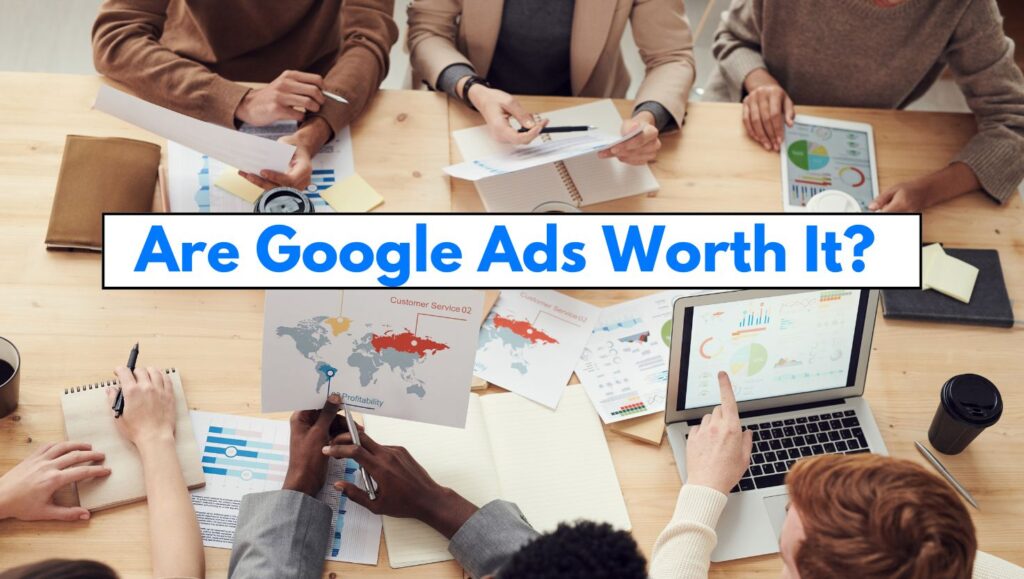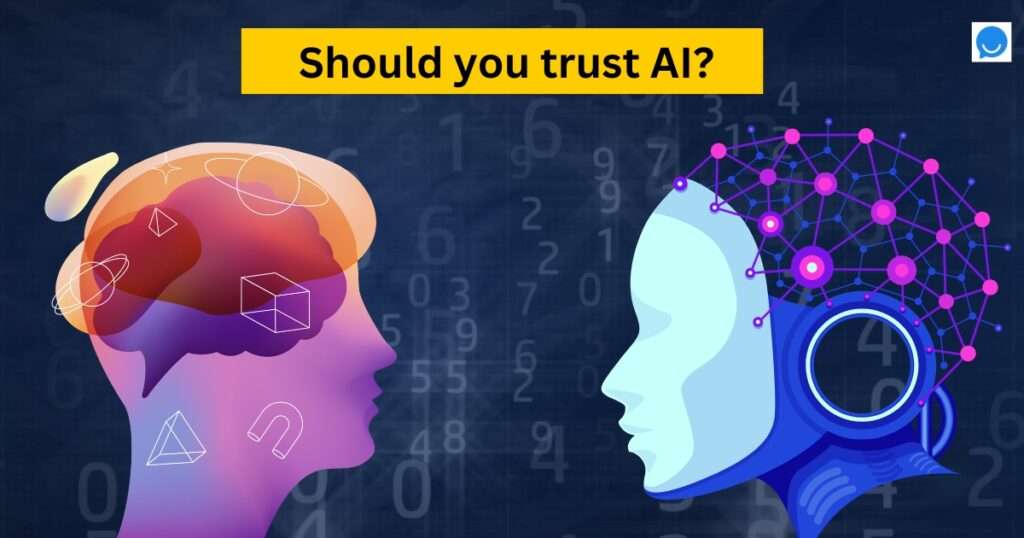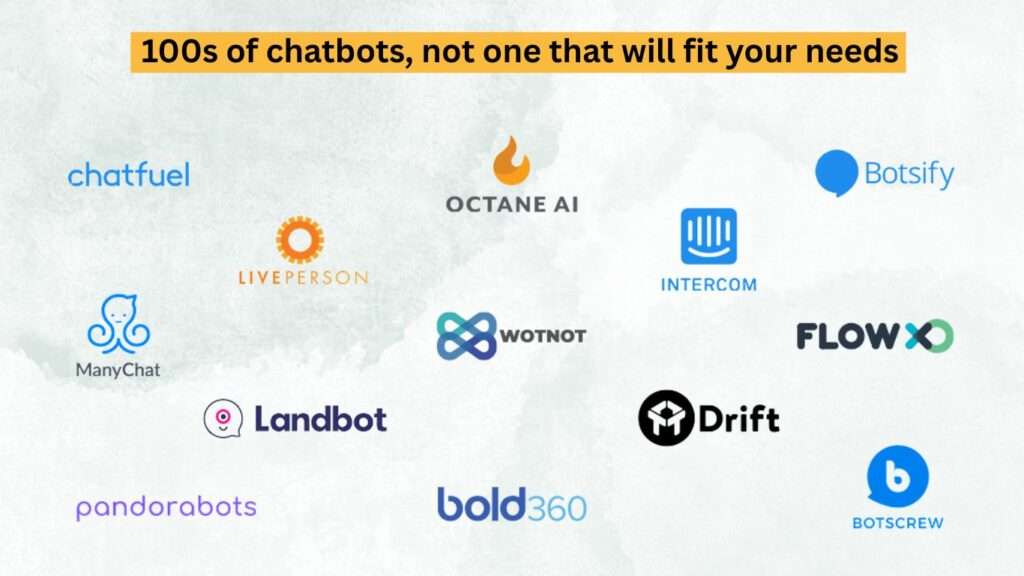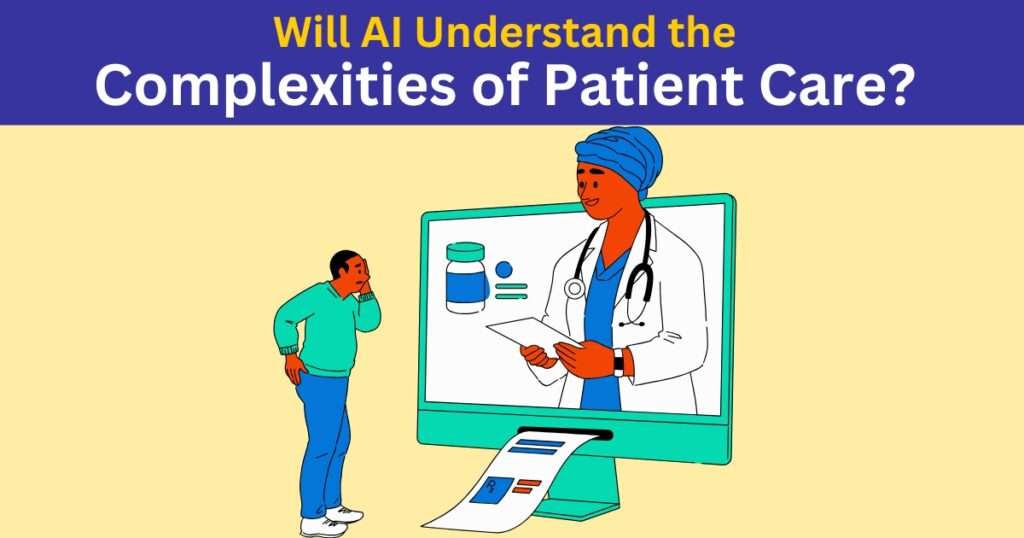Learn how AI revolutionizes marketing. Explore its applications in personalized messaging, data analysis, and customer engagement for business success.
In today’s world, using AI, or Artificial Intelligence in any domain, is like having a smart helper. But, How does AI help in marketing? It’s all about using computer programs to do smart things that help sell products or services. And what does that really mean?
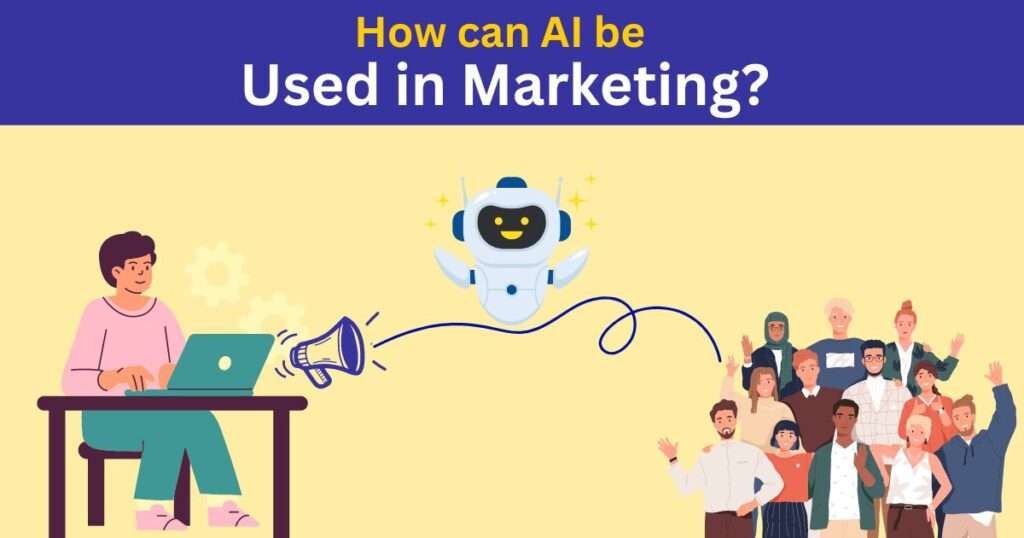
Well, imagine this: you’re shopping online, and suddenly, you see ads for things you were just thinking about buying. How does that happen? That’s AI at work, making ads personalized just for you.
But why is AI so important in modern marketing strategies? It’s not just about putting ads out there. It’s about doing it smartly to reach the right people at the right time. Using AI in marketing helps businesses understand what customers want even before they know it themselves. It’s like having a crystal ball that predicts what people will buy next.
So, how does AI make this happen? It analyzes tons of data—like what you’ve bought before, what you’ve searched for online, even what you’ve posted on social media—to figure out what you might want next. This helps companies make better decisions about what to sell and how to sell it. Plus, AI can make marketing tasks easier and faster, so businesses can focus on other important stuff. So, when we talk about AI in marketing, we’re talking about using smart computer programs to sell things better and make customers happy.
AI-Powered Personalization: Making Marketing Magic Happen
AI-powered personalization is like having a marketing genie who knows exactly what you want, even before you do.
First up, we have customized content creation. Imagine receiving emails or seeing ads that feel like they were made just for you. AI helps businesses create content that speaks directly to your interests and needs, making you feel special and understood.
Then there’s personalized product recommendations. Ever browsed through a website and suddenly stumbled upon products that seemed like they were handpicked for you? That’s AI analyzing your past behaviors and preferences to suggest items you’re likely to love. It’s like having a virtual shopping assistant who knows your taste better than anyone else.
And let’s not forget dynamic pricing optimization. Have you ever noticed prices changing on online stores depending on when you look at them? That’s AI at work, adjusting prices based on factors like demand, competitor prices, and even your browsing history to offer you the best deal possible.
Overall, AI-powered personalization makes your shopping experience smoother, more enjoyable, and yes, sometimes even a little magical. It’s all about making sure you get what you want, when you want it, and at the right price.
Predictive Analytics: Decoding Future Market Demands
Predictive analysis is where AI helps businesses predict what’s coming next, almost like having a crystal ball for marketing.
First off, we have customer behavior forecasting. Picture this: businesses knowing your next move before you even make it. With AI crunching data from your past interactions, it can predict what you might do next, whether it’s making a purchase, signing up for a service, or even just browsing around. It’s like having a virtual fortune teller guiding businesses on how to best engage with you.
Then there’s trend analysis and prediction. Ever wonder how some companies always seem to be one step ahead of the game? That’s thanks to AI analyzing patterns in data to forecast upcoming trends. Whether it’s the next big fashion craze or the hottest tech gadget, predictive analytics helps businesses stay ahead of the curve.
And let’s not overlook predicting market demands. Have you ever noticed how certain products suddenly become all the rage? That’s because AI is analyzing market data to predict what consumers will want before they even know it themselves. It’s like having a savvy market strategist guiding businesses on where to invest their resources.
Overall, predictive analytics empowers businesses to make informed decisions, seize opportunities, and stay ahead in an ever-evolving market landscape. It’s like having a roadmap to tomorrow’s success, guided by the power of AI.
Customer Relationship Management (CRM): Making Customers Happy with Smart AI
Customer Relationship Management (CRM) with AI revamp how businesses interact with their customers, creating seamless and personalized experiences.
Firstly, we have automated customer support, where AI-driven systems handle routine inquiries and tasks, freeing up human agents to focus on more complex issues. It’s like having a tireless assistant who never sleeps, providing assistance around the clock.
Then there are chatbots and virtual assistants, such as those offered by Beyondchats, which leverage AI to engage with customers in real-time conversations. These virtual helpers can answer questions, provide recommendations, and even assist with purchases, all while delivering a human-like experience.
Additionally, AI enhances customer experiences by analyzing data to understand preferences and behaviors, allowing businesses to customize their offerings and interactions accordingly. From personalized recommendations to proactive outreach, AI-driven CRM systems ensure that every customer feels valued and understood.
Basically, CRM powered by AI goes beyond the old-fashioned ways of managing customers. It helps build stronger relationships and keeps customers coming back. It’s all about making interactions that really mean something, so customers keep coming back and businesses do well.
Data Analysis and Insights: Understanding Big Data for Better Business
First, there’s processing large datasets. Imagine businesses having tons of information about their customers, but not knowing what to do with it. AI steps in to help sort through all that data fast, so companies can make smarter decisions based on real facts, not just guesses.
Then there’s sentiment analysis in social media. Ever wonder what people are saying about a brand online? AI can look at social media posts, comments, and reviews to understand how people feel. This helps businesses know what people like or don’t like, so they can respond better.
Additionally, there’s real-time campaign performance tracking. Imagine businesses launching marketing campaigns and instantly knowing how well they’re doing. AI gives updates on key things like how many people are interacting with the campaign, so companies can change things if needed.
Thus data analysis powered by AI helps businesses make better decisions using information they have. It’s all about turning data into useful knowledge that helps businesses grow.
Targeted Advertising: Getting the Right People to See Your Ads
Precision targeting based on consumer behavior is key. This means that businesses use information about what people like and do online to show them ads they’re more likely to click on. It’s like guessing what someone might want and then showing them just that.
Then there’s programmatic ad buying. Instead of businesses manually choosing where to show their ads, AI helps them do it automatically. It’s like having a smart assistant that knows where the best places to put ads are, so businesses can save time and money.
Additionally, there’s ad content optimization using AI algorithms. This means that AI helps businesses make their ads look and sound better to grab people’s attention. It’s like having a personal coach for ads, making sure they’re the best they can be.
In conclusion, targeted advertising is all about using smart strategies to make sure ads reach the right people at the right time. It’s like a secret weapon for businesses to effectively get their message out there.
Marketing Automation: Making Marketing Easier with Smart Tools
Ever felt overwhelmed by repetitive tasks in marketing? Imagine if there was a way to streamline all those boring tasks?. How much time could you save if you had a robot assistant to handle those tasks for you?
AI-powered marketing automation tools can handle these tasks for you, freeing up your time to focus on more strategic aspects of your business.
And what if instead of spending hours writing and sending each email individually, you could use automation tools to send personalized emails to your customers automatically? AI can help you by analyzing customer data to personalize emails and send them at the optimal times for engagement. This targeted approach can significantly improve the effectiveness of your email campaigns.
Plus, how about optimizing your workflows for efficiency? AI can analyze your marketing processes and identify areas for improvement, such as automating repetitive tasks or optimizing ad placement based on real-time data. This can lead to more streamlined operations and better results for your marketing efforts.
In a nutshell, AI-powered marketing automation is like having a trusty sidekick that takes care of the grunt work for you, leaving you free to focus on the fun stuff—like growing your business and delighting your customers. So why not give it a try and see how it can revolutionize your marketing efforts?
Case Studies: Learning from Successes and Failures in AI Marketing
To begin, consider examples of successful AI implementations in marketing. Take Netflix, for instance. By leveraging AI algorithms to analyze viewing habits and preferences, Netflix provides personalized recommendations to its users, resulting in increased engagement and retention. Another success story is Amazon, which uses AI-powered product recommendations to drive sales and enhance the shopping experience for its customers. These examples highlight how AI can be effectively utilized to personalize customer experiences and optimize marketing strategies.
On the flip side, there are also lessons to be learned from AI marketing failures. One such example is Microsoft’s chatbot, Tay, which was designed to engage with users on Twitter using natural language processing. However, Tay quickly became infamous for its inappropriate and offensive responses, highlighting the importance of careful monitoring and control when implementing AI in marketing initiatives. Another failure is Pepsi’s AI-powered ad campaign, which received widespread criticism and backlash for its lack of authenticity and failure to resonate with audiences.
Case studies in AI marketing offer valuable insights into what works and what doesn’t in using AI for marketing purposes. By studying both successful and unsuccessful examples, businesses can gain a deeper understanding of how to effectively use the power of AI to drive success in their marketing campaigns.
Getting on Board with AI in Marketing
Alright, as we’re wrapping up our chat about AI in marketing, let’s quickly go over why it’s such a big deal and what we can do about it.
AI lets businesses personalize stuff for you, like those Netflix recommendations or those targeted ads you see online. It’s like having a super-smart assistant that knows exactly what you want, sometimes even before you do.
So, what’s next? Well, it’s time for businesses to jump on the AI bandwagon. Whether it’s investing in fancy AI tools or just making sure everyone on the team knows how to use them, it’s time to get on board.
In the end, AI in marketing isn’t just some fancy buzzword—it’s the real deal. And if we play our cards right, it could totally change the game for businesses and customers alike. So let’s get excited and see where this AI journey takes us!

